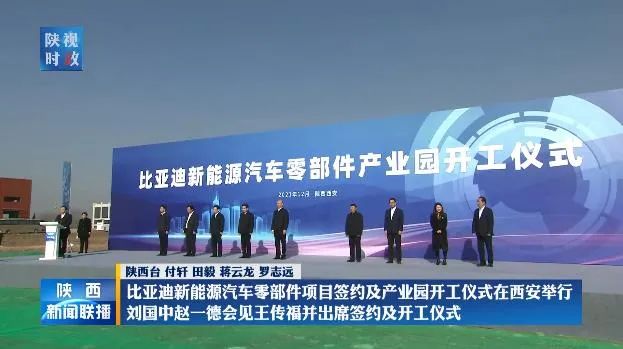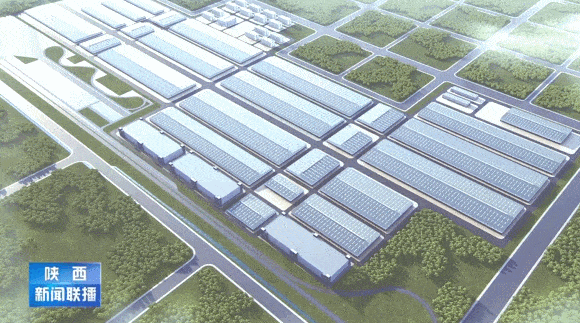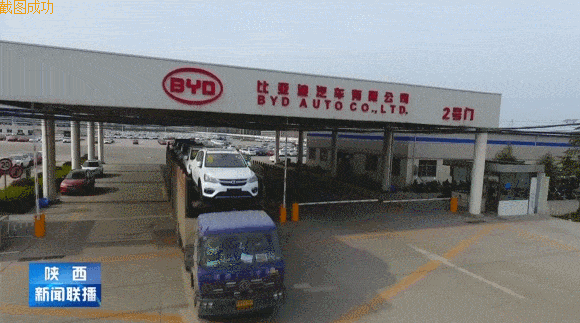The project, which includes an electric assembly plant, motor plant and electric control plant, is expected to be completed by 2024.
BYD has officially started construction on an RMB 15 billion ($2.4 billion) new energy auto parts industrial park in Xi'an, Shaanxi province in northwest China, paving the way for the company to further expand its vehicle production capacity.
The groundbreaking ceremony for the project was held on December 5 in Xi'an in the presence of BYD executives and officials from the Shaanxi provincial government, according to information released Monday by the local government.

The project, which includes an electric assembly plant, an electric motor plant and an electric control plant, is expected to be completed by 2024 and is expected to achieve an annual output of about RMB 70 billion when it reaches production.
BYD's cooperation with Xi'an began in 2003, and as of October 2021, BYD has invested a total of RMB 31.5 billion in Shaanxi, providing more than 60,000 jobs.
Xi'an is one of China's most supportive cities for the new energy vehicle (NEV) industry, and the city recently said it aims to go fully electric by 2030, the first major city to set such a goal.
As China's largest maker of NEVs, BYD is still facing capacity bottlenecks, despite current deliveries of nearly 100,000 units a month.
The company released figures last week showing it sold 91,219 NEVs in November, up 242 percent from a year earlier and 13 percent from October.
That includes 90,121 passenger cars, and 1,098 commercial vehicles.
Among new energy passenger vehicles, BYD sold 46,137 pure electric vehicles in November, up 153 percent from 18,220 units a year earlier. Its plug-in hybrid vehicles sold 43,984 units in November, up 500 percent from 7,333 units in the same month last year.
On November 19, BYD Chairman and President Wang Chuanfu said that demand for BYD's DM-i platform models exceeded supply, with orders on hand for as many as 200,000 units, and that the delivery period for those models is now up to four months.
He said BYD has invested heavily in batteries, but demand still exceeds supply this year, as demand far exceeds BYD's expectations.
On January 11, BYD released the DM-i Super Hybrid technology, which is an electric drive-based hybrid technology that can make the vehicle range exceed 1200km, and the 0-100km/h acceleration time will be 2-3 seconds faster than the same level of fuel vehicles.
However, due to orders far exceeding capacity, BYD has twice previously apologized for slow delivery.

